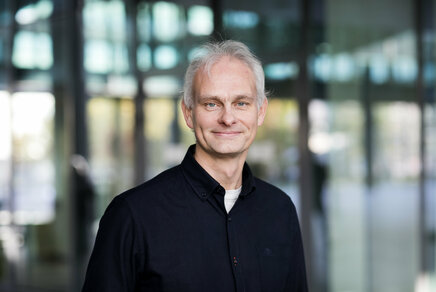Building the processors of the future
EU invests 11 million euros in TU/e-led project to build artificial intelligence at the edge.
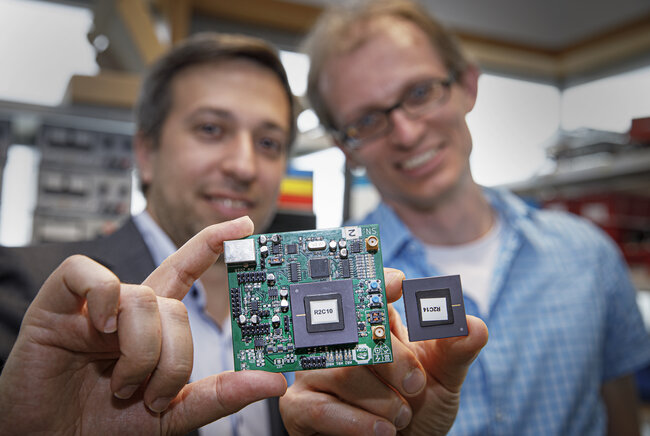
The corona pandemic and the war in Ukraine have shown that self-sufficiency in the production of semiconductors and computer chips is very much a matter of national security. It is one of the reasons why the European Union wants to become less dependent on processors manufactured outside Europe. Now that artificial intelligence is increasingly moving from the cloud and data centers to smart devices, we need new chips that are fast, secure, and energy-efficient. Convolve, a new European-funded and TU/e-led project, aims to make that a reality.
Modern electronic devices become a lot more useful once connected to the internet. The booming world of the Internet-of-things (IoT), which includes smart cameras and connected cars, has made that clear. However, this connection with the cloud, where the sensor data from these devices are sent to be analyzed to generate useful feedback, also has drawbacks.
It uses lots of energy and internet bandwidth, and it can take considerable time to move the data back and forth between the cloud and the device. There are also concerns about the security and privacy of the data sets that are being processed. This is where edge computing, a relatively new field in our increasingly connected world, comes to the fore.
Edge computing stores and processes the data not in a central cloud, but at the edge of the network, in other words, in or near the devices themselves. As it is much faster and more efficient than centralized computing, it paves the way for all kinds of new applications, ranging from continuous, 24/7 health monitoring to predictive maintenance, autonomous driving, and space surveillance.
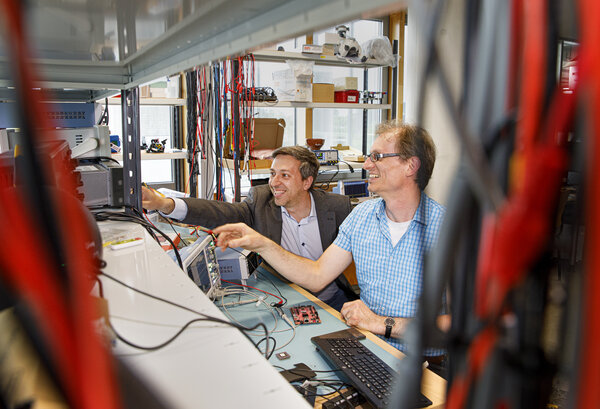
Meet Convolve
To support this promising approach (the global edge computing market is expected to grow by about 40 per cent per year to more than 65 billion euros by 2026), the EU is investing 11 million euros in a new and wide-ranging research project.
Convolve, as the TU/e-led project is known, involves 18 partners from all over Europe and aims to develop new processors for edge computing that limit Europe’s current dependence on chips outside of Europe.
Building these new processors involves overcoming a number of challenges, explains Victor Sanchez, Convolve’s coordinator at the department of Electrical Engineering.
Energy
An important problem is energy efficiency, according to Sanchez. “At present, edge devices use way too much energy, especially if you want to use the energy-consuming deep learning models that enable the smart applications of the future. Edge devices are mostly powered by very small batteries, or by drawing energy from the environment, and are not very efficient because of heat loss.”
This is the only way that the edge computing can become really intelligent.
Convolve’s aim is to make edge processors that use 100 times less energy than current AI processors, enabling the use of the latest deep learning algorithms. “This is the only way that the edge computing can become really intelligent,” says Sanchez.
Energy efficiency requires changes in both hardware and software. “One of the things we and our partners want to do is lower the voltage of the processors as much as possible, while still retaining performance. We also think that neuromorphic computing, which models chips on the human brain, shows real promise in this area.”
Another solution is designing new neural network models that are less complex. Current deep learning models can achieve high-task accuracy, but at a significant cost in memory footprint and energy consumption.”
Other key goals of the project are limiting the time it takes to design ultra-low power processors and ensuring they are secure against hacking. Now that quantum computers threaten to break all cryptographic security mechanisms that currently protect our sensitive communications and data, this has become a major concern.
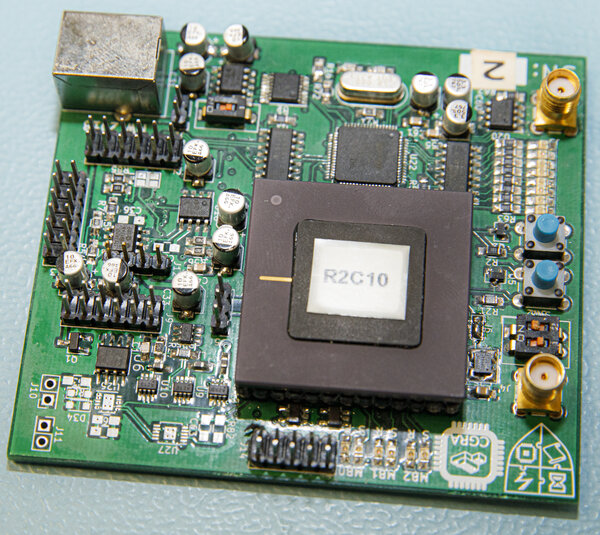
The zoo and the jungle
But that’s not all. Sander Stuijk, one of the TU/e researchers involved in the project, sees an additional benefit from the project.
"With advancements in deep neural networks, a zoo of alternative network models has emerged at the software level. At the same time, hardware designers have created a jungle of different components, which makes building efficient processors very time-consuming. Combining the zoo and the jungle has become ever more challenging. Convolve will develop new design techniques that will glue the hardware and software components seamlessly together, shortening the design time of new processors."
Despite all the challenges, Sanchez and Stuijk are confident that Convolve can achieve its aims within the next three years.
“Europe has a strong position as far as AI and edge computing are concerned, particularly among universities, as well as small and medium-sized companies. If we succeed in bringing this expertise together in a new innovation ecosystem, I’m sure that Europe can become a leader in the edge AI market”, says Sanchez.
About Convolve
Convolve is a TU/e-led consortium consisting of ten universities and eight industrial partners from across Europe. The scientific coordinator is Henk Corporaal, professor in the Electronic Systems group of the department of Electrical Engineering of TU/e.
Are you interested in working for Convolve? TU/e will employ 4 PhD students in this project. You can apply here.
Media contact
More on AI

![[Translate to English:]](https://assets.w3.tue.nl/w/fileadmin/_processed_/e/1/csm_Beintema_Gerben_EE_PO_VH_4007%20%281%29_a6974ea62b.jpg)
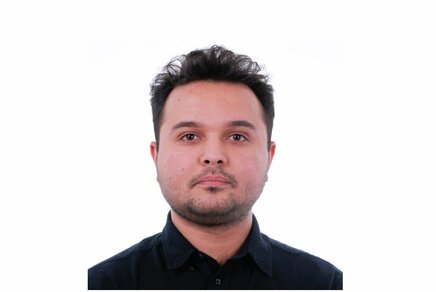
Latest news


